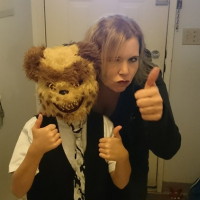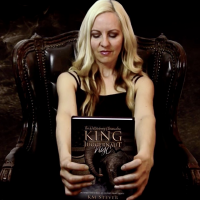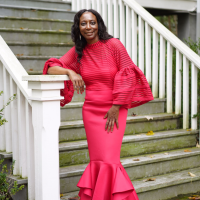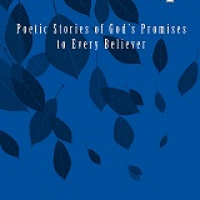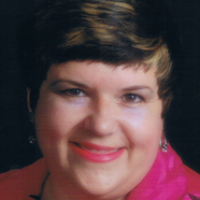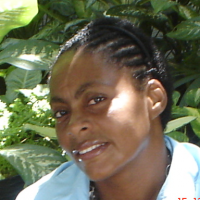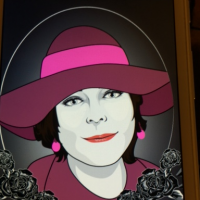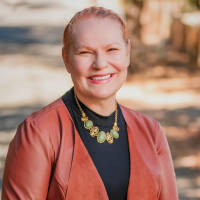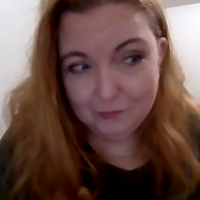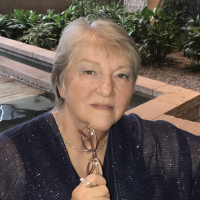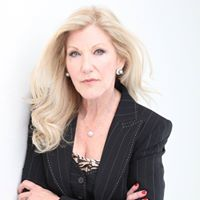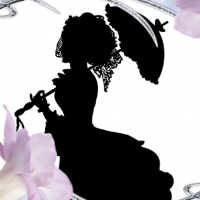1. Write with your filter off. Don't stifle your imagination to fit into anyone's box.
2. Be brave. Don't change your storyline because you fear other's judgement. It will happen anyway. Be authentically you.
3. If you don't know how to do something, ask other authors. Most of us will help if we have the time.
4. Do not panic over a bad review. Check out this person's account. If their reviews are more than 80% bad and they have thousands of reviews, they are just a Troll. Ignore them, believe it or not, it's helpful to have a few bad ones. Suck it up and remain silent. Never comment back. Say this with me, "We do not engage with Trolls."
5. Always write in justified paragraph format and set the advanced settings to do not add space after shift. That isn't the exact wording. I'll look it up and clarify this if you need me too. If you have to respace line by line, it's going to be mind-blowingly tedious.
1. Be fearlessly yourself on social media. If you have a dark sense of humour, roll the dice. You won't regret it.
2. Other Authors are your friends, you are not in competition with anyone but yourself.
3. Follow people with large followings and engage in conversation.
4. To avoid conflict, stay away from these subjects, politics, religion and sex. A media expert told me this over a decade ago.
5. Set aside time each day for book promotion on social media. Update as much as you can every day and always follow readers back. (real accounts only) Who are we to pick and chose?
1. Begin early. You do not have until your book is finished.
2. Know your audience.
3. Research books similar to yours.
4. Get advice from successful authors.
5. Keep current on changes in publishing.
1. Write every day, even if it's a sentence, a plot idea, or hundreds of words, it does not make a difference, as long as you keep at it.
2. Keep reading; your favorite genre and something out of your comfort zone.
3. Never stop learning how to master your craft, listen to webinars and do those courses, there are so many authors offering that for free or at a low cost
4. Write what you want to write, yeah, write to market, DO THAT, but write what moves you, what made you start this journey in the first place.
5. Don't belittle your success, the fact that you wrote a book, is HUGE!
1. Starting your day with prayer and meditation will clear your mind and prepare you for writing.
2. Find a place that you can write without any interruptions.
3. Walking helps your writing flow.
4. Write daily.
5. Do not give up continue to write even when you do not feel like it.
1. Write every day. This helps to keep words and ideas flowing.
2. When you get writers block, take a break from what you’re writing. Start brainstorming for another chapter or story. This will take the pressure off. Once you start writing something new, creativity will start flowing again freeing you to go back to your previous work.
Another way to deal with writer’s block is to start writing or typing something silly. Keep writing silly phrases, words or even songs (more ridiculous the better). This will help you to relax, rid stress and release words. Before you know it, you’ll be back to writing again!
3. Join a writer’s group. There’s a lot of support within the writing community. Most writers are going through same challenges as you are. Many wouldn’t mind sharing tips and suggestions on writing and related issues.
4. Write like you’ve never been critiqued. Beginning writers, beware of confidence thieves like critiques. Heed the friendly advice from seasoned writers and professionals, but don’t let one or a few negative critiques swallow up your confidence. Critiques help your writing get better and stronger, when you embrace them. They only steal your confidence when you take them personally. Learn and keep believing in your writing.
5. Stay encouraged. Another confidence robber is discouragement. Remember, writing is art. Art takes time. Time requires patience. There will be times when you may think you’ll never “get it just right†or not finish at all. You may even begin to doubt your writing. Don’t doubt. Don’t worry. You’ll finish. God would not have given you the beautiful gift of writing if you couldn’t do it. Keep at it. Write something, long or short, every day. Before you know it, you’ll be finished and on your way to the next level that God has planned for you!
1. Be sure you have a foolproof crucible plot. In a romance, your hero and heroine must be in a situation they can't escape. If they could walk away and don't after the first big conflict, then your readers will think they're stupid and deserve each other! Put them in a situation where walking away would cost them far too much.
2. Your book should begin with "why is this day unlike any other?" Get to that quickly. If it is just another day, then it's dull. Something monumental must happen that day -- within a few pages of the book -- to hook the reader.
3. Peel your main characters like an onion. One layer at a time. Don't tell us their whole backstory in big clumps of pages. Feed it to us in small doses, telling us only what is necessary for us to know about their history in order to understand how they are handling the present situation. Readers need to get to know your characters a bit before they will be interested in what happened to them in the past.
4. Secondary characters should support and play off of the main characters. They are there to reveal more about the hero and heroine or to throw up roadblocks. Don't allow them to have their own story that has little to do with what's going on with the hero and heroine. Keep the focus on your protagonists.
5. Finally, and most importantly, "show, don't tell." Show the story through your main characters' eyes, ears, nose, taste, and touch. Don't tell us things through your author viewpoint. You aren't part of this story. You aren't a character in this book. Don't tell us things about the characters -- show us the characters by staying in their viewpoints so that we experience the world through them -- not through you.
Because I read a lot, I have lots of ideas. I create a mood for myself when I want to write. If I wake up in the middle of the night and I can't go back to sleep, I write. I learn from everyone, their decisions, choices, and mistakes. I get character ideas all around me. My characters are everyday people, with everyday problems. And some of them are funny too. You will find yourself, your friends or someone you know in my books.
Writing For Teens:
There was no question why I wrote YA fiction in the first place. When I got into it, it was a thrilling, lucrative and expressive category. Harry Potter was dominating the charts. The Hunger Games appeared, along with Divergent and Twilight. Writing young adult fiction then was like being on s speeding freight train which had no brakes and a throttle that only went forward.
There are no estimates of how many writers jumped on that band wagon.
I remember my first real YA book, The Girl They Sold to the Moon. That tiny tome sold six times and took the first place grand prize in a YA novel writing contest, which was sponsored by a small publisher. That wasn't the reason I wrote it. I wrote it because I loved the characters, not the atmosphere, world or environment. Yet again, something clicked inside me. I had a handle on something. I could talk teen. Not spectacularly, but well enough to pull the wool.
Let me get something out of the way before I continue: I have a non de plume for my young adult stories--Christy J. Breedlove. There's no mystery in changing a name for a genre. But I changed my gender. J.K. Rowling's agent told her to give herself a neutral author name because "boys are less likely to read books written by girls." Hence, the J.K. initials. I just took it a step further.
I believe women can be trusted by other women to write with more emotional impact and feeling. Women don't really have any problems reading the several male authors out there who excel in writing romance. However, women are less likely to read a romance crafted by a guy because it can't quite reach inside them like one of their own. I hoped and prayed that if spontaneous buyers of my young adult books believed they were crafted by a gal (at first), it might go easier for me. Even men believe that gals can lay down a young adult story with more connection and honesty. I know I do. So, no gender bias meant at all. Only respect. (And no, I don't think I'm fooling anyone :)
Back on track: The teenage years are restless and oft times reckless years. They are an era in life that explores change, hopes, failures, experimentation, rebellion and growth. Especially growth. Most fundamental truisms are picked up during these formative years--rules or guidelines for life. What appeals to me so much about this time of life is that it can be so unstable. It's a time when tragic mistakes are made--emotional upheaval is magnified. To me, this gives me a sense of freedom in exploring some deep-felt topics. Unlike an adult that might be more prone to decorum and subtly, a teen might very well blunder into a situation, causing higher consequences and repercussions.
The exploration of the teen mind can offer a ton of latitude in subject matter--life, death, love, hatred, bullying, lawlessness, substance abuse, incest, pregnancy and even murder. The young, let's face it, are resilient, forceful and courageous with their own convictions. They can take a hell of a lot of punishment, rebound and get their life's compass back on direction in record time. Sometimes they fail, but the harder they fail, the harder they strive to crush the demons.
My guilty pleasure in writing for, or about teens, is my utter fascination with their nonconformity. Looking back upon my own kid-hood, I can glimpse my errors and snippets of absolute stupidity. This stupidity allows me cartloads of humor and irony in my writing. There is nothing quite like a couple of teens going at it verbally or physically, and in many cases, only to drive a point home. There's nothing quite like a teen hitting you smack between the eyes with blunt-force honesty. They regularly deal with each other in absolute truth. No words minced. Compared to adults, teens act; there's no lolly gagging. We do have the quiet, shy and retiring types, but those are exceptions, to what I think is the overall demeanor.
In an action/adventure tale, or a post-apocalyptic story, I can bring teens to the edge of death several times and have them ultimately survive. Physiologically, younger adults are more fit than adults. Have you ever seen a walking antibiotic? They can suffer and endure much more abuse than an older person. I have been known to take advantage of this fact time and time again. Youth--strength--indestructibility.
I think teen fiction offers higher stakes, loftier emotions and grander outcomes. Nowhere is YA fiction better told than in the hands of the teenagers themselves. The young set has a finger directly on the pulse of their own lifestyles. They don't have to guess or research what they would do in any given circumstances--they know exactly the ways in which they would handle it, along with their own cultural oddities that so confuse the adults. Teens have a language all their own. You need a decoder ring to understand it. Look at their text messages--you need a cypher to crack them! Trust me, teens are not of this Earth!
As a person in my sixties, I cannot understand why I feel I was chosen to write young adult tales. Those years were some of the fondest times of my life. I don't look back upon them with disdain. Albeit, there were many cringe-worth times. There were stage plays and scenes of stark terror. But I remember them with an awestruck gusto, a bewildering time of adventure and exploration. My over-the-top emotional writing style seems to fit right into the plots and characters. I'm always learning, because there are so many writers out there, both young and old, who are masters at expressing the teen world.
I'm only along for the ride.
I have a lot of reviews that are about to come in for this latest book. The trickle has started. So far everything seems beyond expectations. Yet, all of these reviewers seem to be teen or twenty-something women. I can just about guarantee that if I've got something wrong in the text, it's apt to be flagged. And I welcome that. It just means that I get to learn more secrets.
Christy/Chris--red-shifting outta here.
Watch your spending on ads--they can be grossly ineffective. Use social media and generously interact with fellow writers and readers. Don't abuse FB and Twitter solely for the purpose of "Buy My Book." Join writing groups and learn from the pros. Ask politely for reviews--don't pressure, harass or intimidate. Be creative. Target your genre readers. Offer incentives and freebies. Craft a newsletter and send it out bi-monthly. Don't take critiques as personal attacks--learn from honest opinions. Don't despair. Never give up. Revenge query.
I like to write without distractions, so that means paper and pen. I find that when I write by hand, I don’t concern myself with misspelled words, missed punctuation or any of the editing errors that slow me down when composing by keyboard, whether typewriter or computer. It frees my right brain to relax and let the left side lead. I am always amazed how quickly the pages pour out. Using new tools like Rocketbook, I can easily scan the written pages to any device and it will transcribe them to text for me. A total win-win.
Write clean and edit as you progress in your narrative. Always stop writing when you still have a little left to say, make a note of it and begin there the next time. Go back and re-read a chapter or two before beginning writing, that with your prompt from before you ceased writing will enable you to jump right back into the story.
The best tip I can give anyone is...just write. If you have it in you to write...just write.
When you sit down to start your story, don't worry about the grammar, flow, spelling, or whatever. First get your thoughts down on paper or the computer.
When the story is completed, that's the time to go back to start and reread what you've written. Don't try to edit everything line at this point either (outside of catching glaring mistakes. And trust me, you'll see plenty). Correct what needs to be corrected at that point without stopping the flow of your reading. This will not be the only time you'll read through this manuscript.
As you read your story, jot down important details into a notebook to check the information when it comes up again. This way, you can make sure it hasn't changed. Things like eye and hair color, name spellings, etc.
After you've gone through the story again, with your minor changes to make sure the story flows, go back and do it again. This time take it one chapter at a time, and do a self-edit. You can use a program on the computer for this. I do. Make your changes and move on to the next chapter.
Then it's read-through time again for that chapter to see if everything still flows. At this point, you can send that chapter off to a critiquer for their opinion.
When you get the critique back, make the appropriate changes, but remember this is your story, your style, not theirs.
When you've gone through each chapter, you need to reread the entire story again. You can also have a beta reader go through it.
Then it's off for professional editing, and making corrections they suggest, if you approve them.
Even after you've gone through the professional editors changes, you will want to reread your story one more time before sending it off. Check all your notes as you read. Some people like to put the book out of their mind for a while before doing that final read through. If that works for you, do it.
Kiss it goodbye until your get that final proof. Then you'll need to read it through carefully one more time. Make changes if need be, and then approve it for publishing.
Hope this helps some of you.
HOW THICK DOES AN AUTHOR'S SKIN NEED TO BE?
Every now and then, you wake up to what you think will be a good day. For an author, that would probably be a steamy mug of coffee, a quiet space to work in, and a full day in which to lose yourself in your characters and story. There you sit, with your fingers poised over the keyboard of your computer, ready to work on your latest and greatest work in progress. A smile graces your lips and you think, today I know exactly where I am going with this chapter. You've spent the night wrestling with twists, turns, and character revelations, and settled upon your course of action. And then (drum roll), and then you decide to peek at your reviews on Goodreads. What a bad idea that can be! You look, you squint, your heart skips a couple of beats, and you feel your stomach sink. There it is, impossible to deny, that dreaded one or two-star review. You feel sick, not only from the standpoint of your ego but because you allow the review to get under your skin. That one or two-star review can literally rip your guts out and reduce you into a babbling idiot. You vanish, poof, and all that remains of the confident author are your insecurities and self-doubts. Forget brilliant prose and those dreams of readers clamoring to read your efforts. Even if you simultaneously receive a five-star review, it is the one or two stars that cast a pall squelching your creativity. You're back in grade school or high school, and that class bully or bitchy girl has singled you out to bear the brunt of their own frustrations and inadequacies.
You ask yourself the question that begs for an answer, why is it that the person who hates your efforts is the one that feels the necessity to expound the most? Even, when they might not have finished your book. They take pen or computer, and rant and rave, until it's a wonder that they just don't explode from their hypertensive efforts. It's almost as if every inequity known to man has somehow been conveyed in the pages of your book. Please, just take a breath, it's a novel; not everything conforms to your sensibilities. There isn't always a happy ending, not for you, not for me, and certainly not in a book.
It's times like these that an author would do well to grow a thick skin, perhaps something like that of a rhinoceros, or better yet a porcupine. Something that protects from the barbs, and sharpened teeth of a mad, frothing at the mouth, rabid reader. It's funny the difference in people. I would never take the time to write a long, laborious scathing review. It would never occur to me. If a book is that bad I just move on, usually without a peep. I don't hate the author or wish he or she ill will. Besides, my time is far too precious. I'd much prefer writing about the books that have moved me, informed me, opened doors for me, entertained me. Ah, but that's what differentiates us, it's the difference between vanilla and chocolate. After all, that is all a review really is, one person's opinion, and very often that person holds no special degree in literary criticism, do they?
I am reminded of what Kurt Vonnegut thought about the matter: "As for literary criticism in general; I have long felt that any reviewer who expresses rage and loathing for a novel or a play or a poem is preposterous. He or she is like a person who has put on full armor and attacked a hot fudge sundae, or a banana split."
Now that I got that off my chest, it's back to the book!
